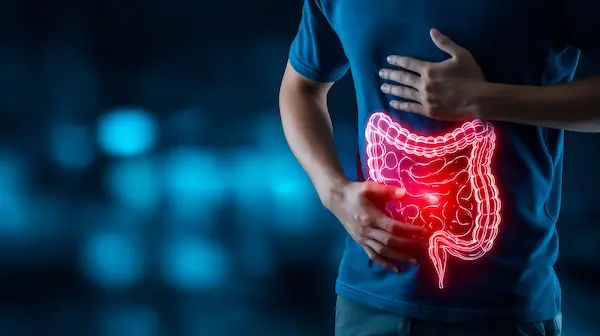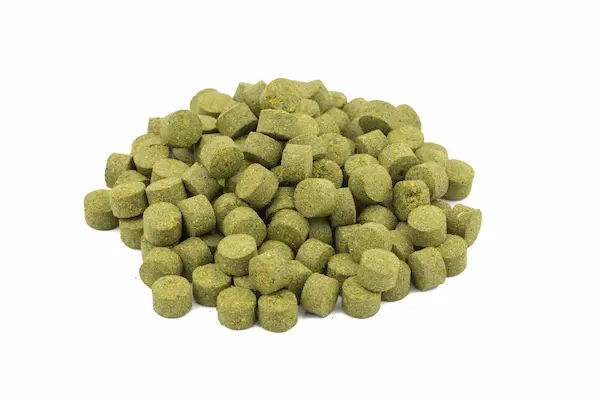Guide to Bloated Stomach
Discover the causes of a bloated stomach and effective ways to find relief. Our comprehensive guide covers diet tips, lifestyle changes, and when to see a doctor. Stop feeling uncomfortable!

Written by Dr. Dhankecha Mayank Dineshbhai
Reviewed by Dr. Rohinipriyanka Pondugula MBBS
Last updated on 13th Jan, 2026
.webp?tr=q-80,f-webp,w-350,dpr-2,c-at_max 700w)
Introduction
A bloated stomach can make even a normal day feel uncomfortable. Whether your stomach swells after meals, gurgles with gas, or feels tight and heavy at night, you’re not alone—bloating is one of the most common digestive complaints. The good news: most causes of a bloated stomach are manageable with simple, science-backed changes to how you eat, move, and manage stress. In some cases, though, stomach bloating can be a red flag for a medical condition that needs attention.
In this comprehensive guide, you’ll learn what a bloated stomach really is (and isn’t), the most common dietary and medical causes, how to get fast relief at home, and the best long-term strategies to calm your stomach. We’ll also cover when to see a doctor, which tests can help, and how to build a 7‑day plan to reset your gut. Throughout, you’ll find practical examples, recent evidence, and clear steps you can start today. If symptoms persist beyond two weeks or are severe, consult a doctor online with Apollo 24|7 for further evaluation.
What a Bloated Stomach Really Means?
Why does it feel worse in the evening?
Most people say “bloated stomach” to describe a feeling of pressure, fullness, or tightness in the abdomen. Clinicians distinguish:
- Bloating: the subjective sensation of a swollen stomach.
- Distension: an objective increase in abdominal size (your waistband gets tighter).
- Water retention: puffiness due to fluid shifts (e.g., premenstrual), which is different from gas.
Bloating often comes from gas produced in the gut when bacteria ferment carbohydrates, especially short-chain fermentable carbs (FODMAPs). Constipation can trap gas behind stool, amplifying stomach pressure. Swallowed air from eating quickly, chewing gum, or carbonated drinks adds more gas. Functional gut disorders (like IBS or functional dyspepsia) and altered gut-brain signaling can make the stomach more sensitive to normal amounts of gas, so you feel discomfort sooner.
Why evenings feel worse: Food intake accumulates through the day; gastric emptying slows with high-fat meals; and if you sit long hours, gas pools in the bowel. Many people report a flat stomach in the morning and a visibly distended stomach by night. A practical insight: small changes in posture and gentle movement after meals help gas travel through the bowel, reducing evening distension.
Consult a Top General Physician
When to worry: If your stomach is persistently, progressively enlarging, or you have red flags like weight loss, vomiting, fever, or blood in stool, don’t ignore it—seek medical care promptly .
Common Dietary Triggers for a Bloated Stomach
Diet is the most common driver of a bloated stomach. Key culprits:
- FODMAPs: fermentable oligo-, di-, mono‑saccharides and polyols. These include some fibers, wheat/fructans, lactose (if intolerant), fructose (in excess or malabsorption), legumes/galacto‑oligosaccharides, and sugar alcohols like sorbitol and mannitol. In sensitive people, they draw water into the small intestine and are fermented by gut bacteria, producing gas, leading to stomach pressure and abdominal distension.
- Carbonated beverages: CO2 gas increases burping and stomach expansion.
- Sugar alcohols: common in “sugar-free” products and protein bars; they’re poorly absorbed and highly fermentable, producing gas and diarrhea.
- High-fat meals: slow gastric emptying, increasing fullness and reflux.
- High-residue fiber shifts: suddenly increasing fiber can worsen gas; soluble fiber generally produces less gas than insoluble bran.
Evidence: Low FODMAP diets reduce bloating and abdominal pain in IBS by about 30–50% in many trials, especially when guided by a dietitian [6]. This isn’t a forever diet; it’s a short-term elimination (2–6 weeks) followed by careful reintroduction to personalize triggers.
Unique insight: It’s often the portion, not the food. A few florets of broccoli may be fine, but a full bowl may overload your stomach and small intestine with fermentable carbs. Use “dose” experiments: keep the food, change the amount.
Try this: If you notice a bloated stomach after eating onion/garlic-heavy meals, test garlic‑infused oil (flavor without fructans) and swap onion for green parts of spring onions.
Medical Causes That Deserve Attention
Beyond diet, several conditions can cause a bloated stomach:
- IBS (irritable bowel syndrome): Commonly features bloating, variable bowel habits, and abdominal pain. Visceral hypersensitivity makes normal gas feel painful.
- Functional constipation: Trapped stool slows gas transit, causing stomach fullness and distension; resolving constipation often relieves bloating.
- Functional dyspepsia: Upper stomach discomfort, early fullness, and sometimes bloating.
- Coeliac disease: Autoimmune reaction to gluten causing malabsorption, gas, weight loss, anemia, and bloating; requires serology and confirmation before going gluten‑free.
- Lactose or fructose intolerance: Enzyme deficiencies or malabsorption cause fermentation and gas after specific sugars.
- SIBO (small intestinal bacterial overgrowth): Excess bacteria in the small intestine ferment carbs early, causing bloating soon after meals, belching, and sometimes diarrhea; breath testing or empiric treatment may be considered in selected cases.
- Gastroparesis: Delayed stomach emptying (often in diabetes, post‑viral, or medication‑related), causing early satiety, nausea, stomach bloating.
- GERD: Reflux can co‑exist with bloating; aerophagia (excessive air swallowing) worsens both.
- Gynecologic and systemic causes: Endometriosis, ovarian masses, or ascites (fluid in the abdomen) can mimic a bloated stomach; red flags include persistent, progressive distension, early satiety, and unintentional weight loss.
Medication links: Metformin, iron supplements, certain antibiotics, and GLP‑1 receptor agonists (e.g., semaglutide) commonly cause a bloated stomach and gas. Discuss options with your clinician before stopping any medication.
If your condition does not improve after trying these methods, book a physical visit to a doctor with Apollo 24|7.
Symptoms Checklist and When to See a Doctor?
Green flags (self‑care reasonable):
- Intermittent bloated stomach after meals
- Improves with passing gas or stool
- No significant weight loss, bleeding, or nighttime symptoms
Yellow flags (seek advice if persistent >2 weeks):
- New or worsening stomach bloating
- Significant change in bowel habits
- Age >50 with first-time symptoms
- Family history of GI disease
Red flags (medical evaluation soon):
- Unintentional weight loss or fever
- Persistent vomiting, inability to pass gas or stool
- Blood in stool, black stools
- Persistent, progressive abdominal distension, especially with early satiety
- Severe stomach pain with rigid abdomen
Women’s health: PMS, perimenopause, and endometriosis can contribute to cyclical bloating due to hormone swings and fluid shifts. Bloating with pelvic pain, painful periods, or pain during intercourse warrants gynecologic assessment.
If symptoms persist beyond two weeks, consult a doctor online with Apollo 24|7 for further evaluation.
Tests and Diagnosis: What Really Helps?
Labs and breath tests; imaging when needed
- Start simple. A 10‑day symptom diary noting meals, timing, stress, and bowel habits often reveals patterns. Track when the stomach bloats—immediately after eating (think aerophagia, SIBO, upper GI issues) vs hours later (colonic fermentation).
Evidence‑based tests your clinician may consider:
- Coeliac serology (tTG‑IgA with total IgA), iron studies if anemia suspected
- Lactose or fructose hydrogen breath tests when intolerance is suspected
- H. pylori testing for upper stomach symptoms/dyspepsia
- Thyroid function (hypothyroidism can worsen constipation)
- Stool tests (occult blood, calprotectin) if inflammatory bowel disease is a concern
- Abdominal X‑ray or ultrasound in suspected obstruction/ascites or gynecologic pathology
Tip: Do not start a strict gluten‑free diet before coeliac testing; it can cause false negatives.
Convenience note: Apollo 24|7 offers convenient home collection for tests like thyroid profile, vitamin D, and HbA1c if metabolic contributors are suspected.
Fast Relief You Can Try Today
Movement, positions, and massage
OTC options: simethicone, peppermint oil, enzymes
Gentle movement helps move gas and reduce a tight stomach:
- 10–20 minutes of brisk walking after meals speeds gas transit and stimulates bowel movements.
- Positions: “knees-to-chest” or child’s pose can shift gas; left lateral position may reduce stomach pressure and reflux.
- Abdominal massage: clockwise circular strokes for 10 minutes can improve constipation-related bloating in some small studies.
Over‑the‑counter approaches:
- Simethicone: helps coalesce gas bubbles; evidence is mixed but many report symptom relief and it’s low risk.
- Peppermint oil (enteric‑coated): has antispasmodic effects; meta‑analyses show benefit for global IBS symptoms including bloating in many patients.
- Lactase enzyme: take with dairy if lactose intolerant.
- Alpha‑galactosidase: may reduce gas with legumes/crucifers.
- Avoid excessive antacids with sodium bicarbonate if stomach bloating is the main issue; they may add gas.
Home insight: Heat (warm compress) over the abdomen relaxes muscles and can ease a tight stomach, especially with cramps.
Diet Strategies for Long‑Term Relief
Low FODMAP—how to do it safely
Portion sizing, swaps, and reintroduction
Low FODMAP diet (with dietitian guidance) is one of the most studied dietary strategies for IBS and bloating. It has three phases:
1) Elimination (2–6 weeks): reduce high‑FODMAP foods (certain fruits like apples, stone fruits; wheat/onion/garlic; legumes; some dairy; sugar alcohols).
2) Reintroduction (6–8 weeks): test foods group by group to find specific triggers and doses.
3) Personalization: build a long‑term, balanced plan including tolerated foods.
Other strategies:
- Portion awareness: halve high‑FODMAP servings (e.g., cauliflower, chickpeas).
- Swap examples: wheat bread to sourdough or low‑FODMAP gluten‑free; milk to lactose‑free; onion/garlic to infused oils.
- Fiber balance: increase soluble fiber (e.g., oats, psyllium) gradually; psyllium has evidence for IBS stool normalization and may reduce bloating.
- Cut back on carbonation and sugar alcohols; limit ultra‑processed foods with emulsifiers that may alter gut microbiota.
Unique insight: Cold rice and potatoes (cooled after cooking) form resistant starch, which can be better tolerated by some people, feeding gut bacteria more slowly—experiment with small amounts and monitor your stomach response.
Lifestyle, Stress, and Movement
How you eat matters as much as what you eat?:
- Slow down: 20+ minutes per meal reduces air swallowing and gives your stomach time to signal fullness.
- Posture: Sitting upright (hips and knees at 90 degrees) during and after meals reduces reflux and stomach compression.
- Diaphragmatic breathing: 5–10 minutes before/after meals can reduce aerophagia and improve gut motility via the vagus nerve; it’s been used in functional GI disorders to reduce bloating and belching.
Stress and sleep:
- Stress sensitizes the gut; mindfulness, CBT‑GI, or even a simple 10‑minute relaxation routine can reduce IBS‑related stomach bloating.
- Aim for 7–9 hours of sleep; circadian disruption alters motility and microbiota.
Movement:
- Daily steps (7,000–10,000) and light activity after meals support gas clearance and regularity.
- For stomach bloating at night, take a short post‑dinner walk and finish eating 3 hours before bedtime.
Probiotics, Medications, and Supplements—What’s Worth Trying?
Medication review and targeted therapies
Probiotics can help some people with IBS‑type bloating, but effects are strain‑specific and modest. Lactobacillus plantarum 299v, Bifidobacterium infantis 35624, and certain multi‑strain products show benefit in some trials for abdominal pain/bloating, while others do not [10]. Trial one product for 4 weeks and continue only if your stomach symptoms improve. In suspected SIBO, probiotics may worsen symptoms—address underlying overgrowth first.
Prebiotics (inulin, FOS) can increase gas initially; start low and go slow. Partially hydrolyzed guar gum may be gentler.
Medication considerations:
- Review drugs that commonly bloat the stomach (metformin, GLP‑1s, iron, antibiotics). Adjusting dose, timing, or formulation may help—talk to your doctor.
- Antispasmodics (e.g., hyoscine) may help with crampy pain.
- Rifaximin: an antibiotic sometimes used for IBS‑D or SIBO under medical supervision.
- Prokinetics: in gastroparesis, targeted meds can assist stomach emptying.
If you’re unsure which path fits your case, consult a doctor online with Apollo 24|7 to personalize options.
A 7‑Day Bloat Reset Plan
Daily rhythm: meals, movement, and mindful minutes
Sample menu and reintroduction framework
Day 1–2: Stabilize
- Meals: Simple, low‑FODMAP base (e.g., eggs or tofu with spinach; rice or quinoa with grilled chicken/fish; carrots, zucchini; lactose‑free yogurt).
- Drinks: Still water; avoid carbonation and sugar alcohols.
- Rhythm: 3 main meals + 1 snack; 10‑minute walk after meals.
- Practice 5 minutes of diaphragmatic breathing before lunch/dinner.
Day 3–4: Support motility
- Add 1–2 tsp psyllium husk daily with water.
- Abdominal massage for 10 minutes in the evening.
- Keep portion sizes moderate; chew thoroughly.
Day 5–6: Test gentle fibers and starches
- Add oats or chia pudding (lactose‑free milk), small cold potato portions (resistant starch).
- Try a probiotic (single product) if desired; assess stomach response.
Day 7: Reintroduction trial
- Choose 1 food category (e.g., lactose, fructans) and test a small dose at lunch. Track stomach symptoms for 24–48 hours.
- Plan the next test for 2–3 days.
Unique insight: Plan “bloat buffer” days when social meals are predictable. The day before and day of a big dinner, keep breakfast/lunch low‑FODMAP and take a post‑dinner walk to help your stomach manage the load.
Special Situations: Period Bloating, Kids, and Older Adults
Hormone-related stomach symptoms
Age-specific considerations
- Period bloating: Estrogen and progesterone shifts can increase water retention and alter gut motility. Strategies:
- Limit high‑salt foods the week before your period.
- Ensure magnesium‑rich foods (nuts, leafy greens).
- Gentle yoga/heat can ease a tight stomach.
Children: Persistent bloated stomach with poor growth, chronic diarrhea, or pain needs evaluation for coeliac disease, lactose intolerance, or constipation. Avoid restrictive diets without pediatric guidance.
Older adults: Polypharmacy, slower motility, and higher constipation risk increase bloating. Review medications and prioritize hydration, fiber progression, and movement.
When a Bloated Stomach Signals Something Serious?
Serious considerations include bowel obstruction (severe pain, vomiting, no gas/stool), ascites (fluid build‑up; taut, shiny abdomen), ovarian cancer (persistent stomach distension with early satiety, pelvic pain), inflammatory bowel disease (bloody diarrhea, weight loss), and coeliac disease (malabsorption, anemia). If any of these are suspected, seek prompt medical care. If your stomach bloating is persistent, worsening, or associated with red flags, consult a doctor online with Apollo 24|7 or arrange an in‑person exam.
Conclusion
A bloated stomach is frustrating, but it’s usually solvable with a thoughtful approach. Start by noticing patterns—when your stomach swells, what you ate, and how you were feeling. Then apply the low‑risk fundamentals: slow down your meals, take a short walk afterward, try diaphragmatic breathing, reduce carbonation and sugar alcohols, and make smart swaps such as lactose‑free dairy and garlic‑infused oils. If your stomach calms with these steps, you’ve likely identified the main drivers.
If you still struggle, consider a structured low FODMAP trial with careful reintroduction to pinpoint triggers, and review medications that may be contributing. For some, medical conditions such as IBS, constipation, coeliac disease, or SIBO need targeted care; red flags always warrant an earlier doctor visit. The 7‑day reset gives you a practical runway to reduce symptoms and build momentum toward long‑term relief.
Your stomach doesn’t have to dictate your day. With evidence‑based strategies and a few lifestyle tweaks, you can reduce bloating, improve comfort, and enjoy meals again. If your condition does not improve after trying these methods, book a physical visit to a doctor with Apollo 24|7 or consult online to personalize testing and treatment.
Consult a Top General Physician
Consult a Top General Physician

Dr. Srujana Mulakalapalli
General Physician/ Internal Medicine Specialist
5 Years • MBBS, MD (GENERAL MEDICINE)
Bengaluru
Apollo Medical Center, Marathahalli, Bengaluru
(25+ Patients)

Dr. Vivek D
General Physician
4 Years • MBBS
Bengaluru
PRESTIGE SHANTHINIKETAN - SOCIETY CLINIC, Bengaluru

Dr Syed Mateen Pasha
General Physician
2 Years • MBBS
Bengaluru
PRESTIGE SHANTHINIKETAN - SOCIETY CLINIC, Bengaluru

Dr. Syed Ismail Ali
General Practitioner
7 Years • MBBS
Hyderabad
Apollo 24|7 Clinic, Hyderabad

Dr. Harshendra Jaiswal
General Physician/ Internal Medicine Specialist
12 Years • MBBS , MD (General medicine)
Kolkata
108 DHANA DHANVANTARI Clinic, Kolkata
(25+ Patients)
Consult a Top General Physician

Dr. Srujana Mulakalapalli
General Physician/ Internal Medicine Specialist
5 Years • MBBS, MD (GENERAL MEDICINE)
Bengaluru
Apollo Medical Center, Marathahalli, Bengaluru
(25+ Patients)

Dr. Vivek D
General Physician
4 Years • MBBS
Bengaluru
PRESTIGE SHANTHINIKETAN - SOCIETY CLINIC, Bengaluru

Dr Syed Mateen Pasha
General Physician
2 Years • MBBS
Bengaluru
PRESTIGE SHANTHINIKETAN - SOCIETY CLINIC, Bengaluru

Dr. Syed Ismail Ali
General Practitioner
7 Years • MBBS
Hyderabad
Apollo 24|7 Clinic, Hyderabad

Dr. Harshendra Jaiswal
General Physician/ Internal Medicine Specialist
12 Years • MBBS , MD (General medicine)
Kolkata
108 DHANA DHANVANTARI Clinic, Kolkata
(25+ Patients)
More articles from General Medical Consultation
Frequently Asked Questions
Why is my stomach bloated after eating?
Common reasons include FODMAP-rich foods, eating too fast (air swallowing), carbonation, or high-fat meals slowing stomach emptying. Try smaller portions, low FODMAP swaps, and a 10‑minute post‑meal walk for stomach gas relief.
How do I know if it’s bloating or weight gain?
Bloating fluctuates (often worse at night, better by morning) and changes with meals or bowel movements. Weight gain is steadier and doesn’t resolve overnight. If your stomach size varies throughout the day, bloating is more likely.
Do probiotics help a bloated stomach?
Some strains help IBS bloating, but results vary. Trial one evidence‑backed strain for 4 weeks. If stomach symptoms don’t improve, stop and reassess; in suspected SIBO, probiotics may worsen gas.
What foods cause the most bloated stomach?
Onions, garlic, wheat (fructans), beans/lentils, certain fruits (apples, stone fruits), and sugar alcohols are common. Use a low FODMAP diet for bloating short term, then reintroduce foods to identify personal triggers.
When should I see a doctor for stomach bloating?
If you have red flags (weight loss, vomiting, blood in stool, persistent/progressive distension) or if symptoms persist beyond two weeks. Consult a doctor online with Apollo 24|7 for guidance and potential tests.




